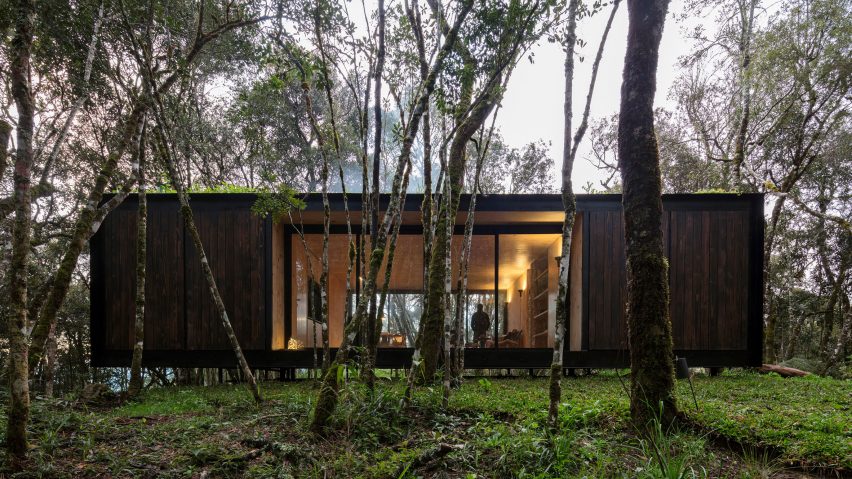
MAPA hides prefab Minimod Curucaca in Brazilian forest
Architecture studio MAPA and its prefabricated building company Minimod have completed this residence in Brazil, using black walls and a green roof to help blend in with its remote woodland surrounds.
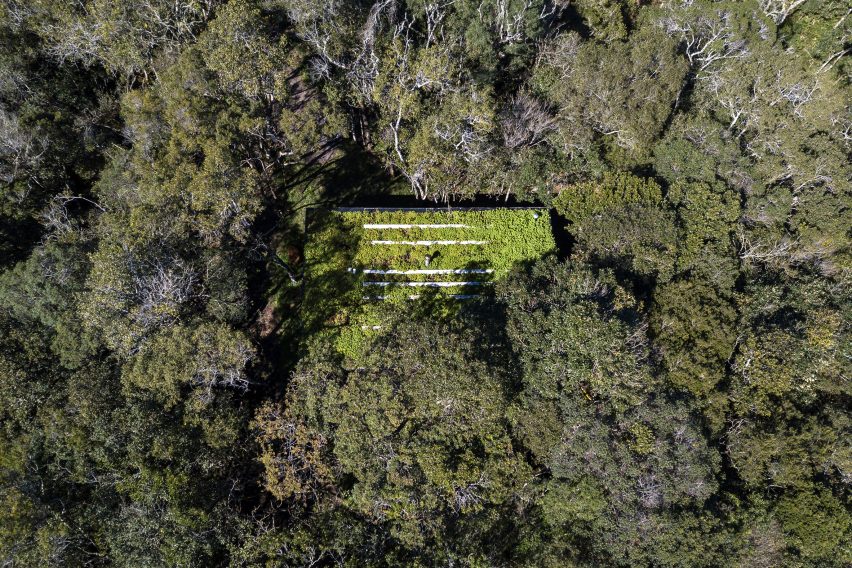
The Brazil- and Uruguay-based firm designed the residence called Minimod Curucaca for a forest clearing in the Curcaca Valley, which is located in a mountainous region of southern Brazil.
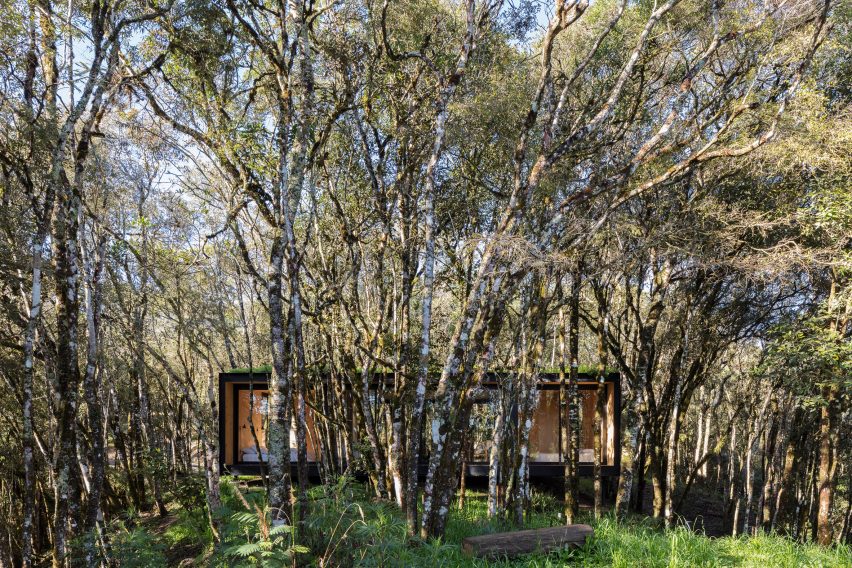
Forming the latest output of MAPA's product-focussed arm Minimod – which has completed other prefab residences in Uruguay and Brazil – the building was built in a factory near São Paulo and then transported 900 kilometres via truck to the site.
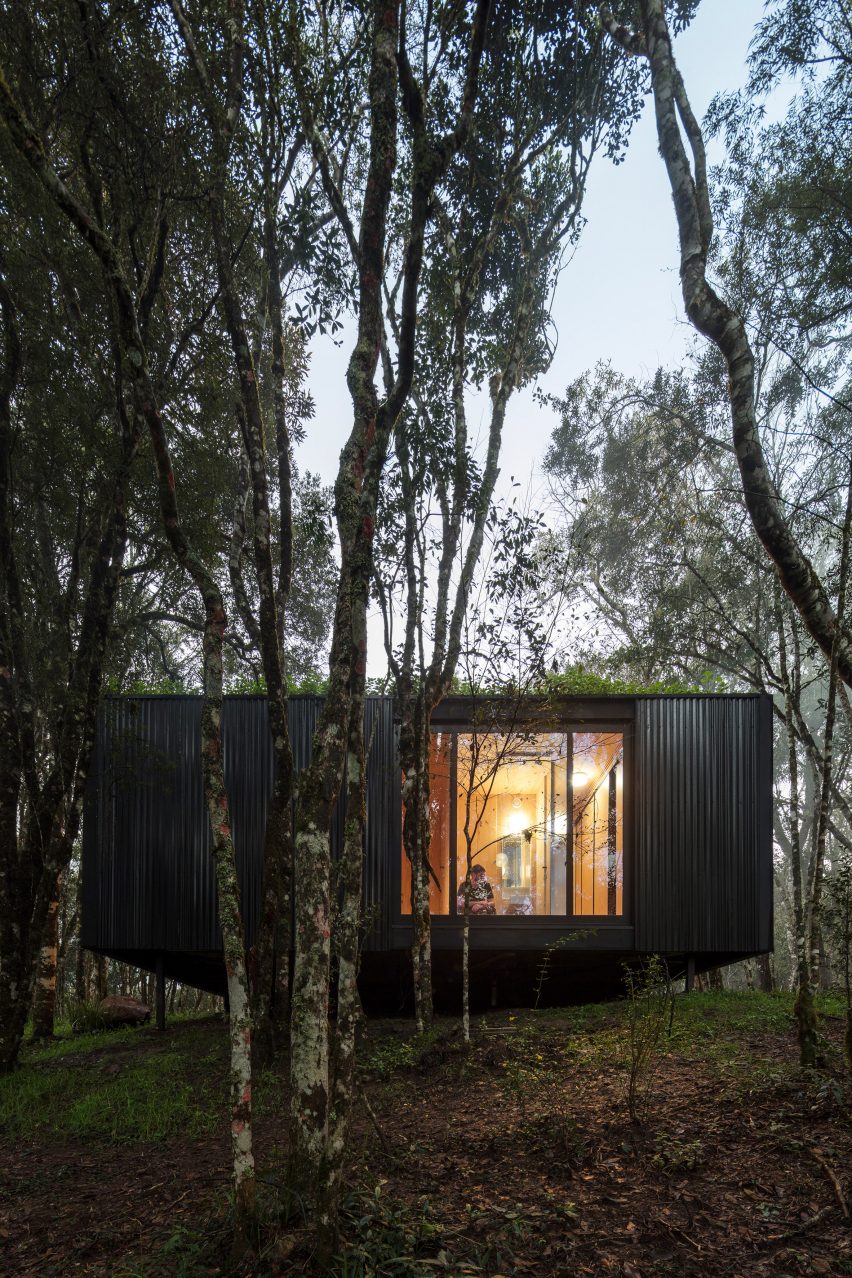
The residence itself is a simple, one-storey volume elevated on stilts to rise above the sloped plot.
Details such as a blackened exterior and a grassy roof by Ecotelhado are intended to complement the natural terrain. There are also large expanses of glass that break up the module to offer views of the surrounding valley.
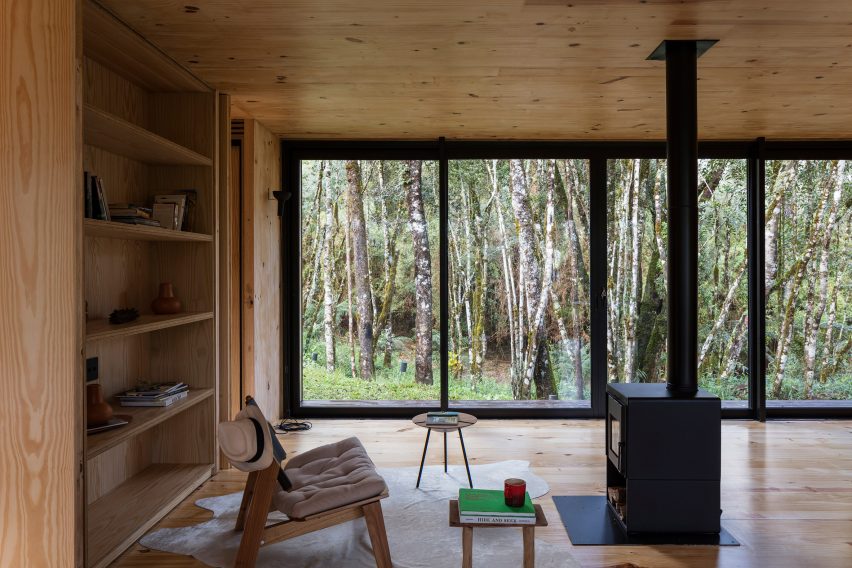
"It presents itself as a primitive retreat with a contemporary reinterpretation, which more than an object aims to become an every-remote-landscape experience," said MAPA.
"Its compact and efficient design enhances the surroundings of where it is installed and turns them into available landscapes."
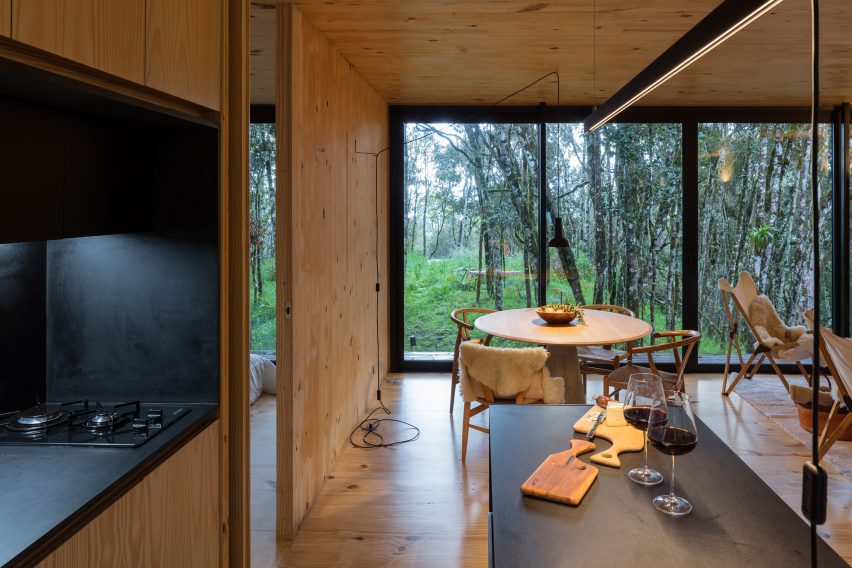
MAPA designed the construction panels from cross-laminated timber – an engineered wood in which slices of wood are layered at right angles and glued together. Also known as CLT, the material matches the strength of concrete and steel but is fairly new to Brazil.
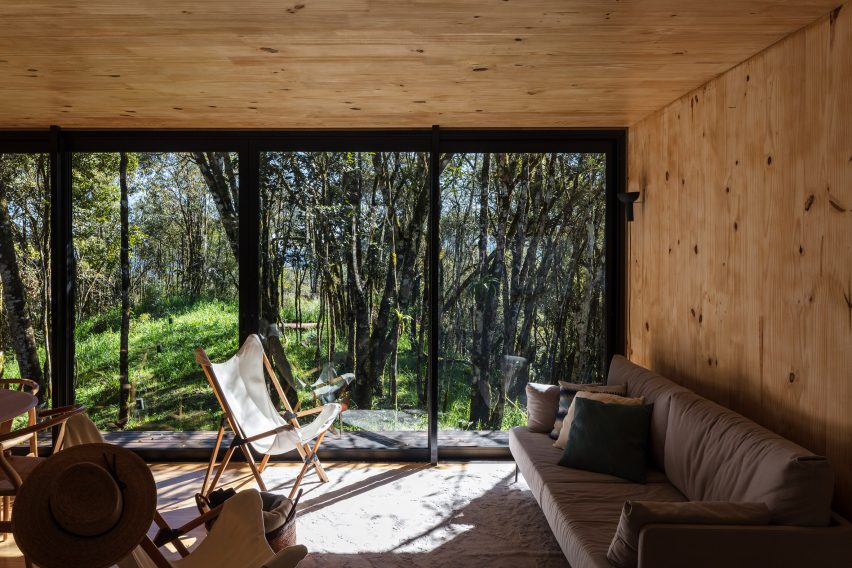
"It incorporates the benefits that a newly-born industry has to offer," said the studio, which also used CLT to build a simple, prefab chapel on a vineyard in Maldonado, Uruguay.
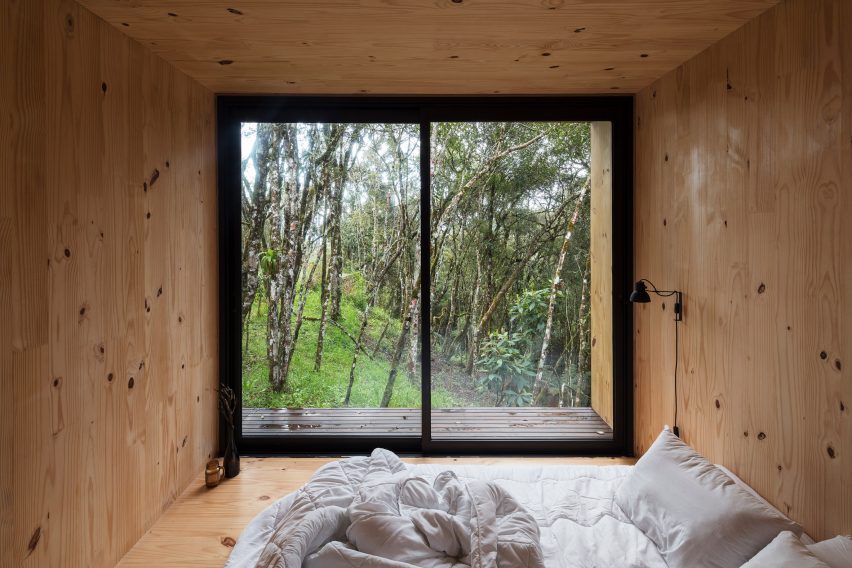
While the exterior is finished black, inside nobbly timber boards are left exposed throughout. They feature on the floors, walls and ceiling.
The home is based on a compact floor plan with a main living area at its core, and two similarly sized bedrooms are on either side. Both feature bathrooms that can either be accessed from the bedrooms, or from smaller rooms that serve as storage closets.
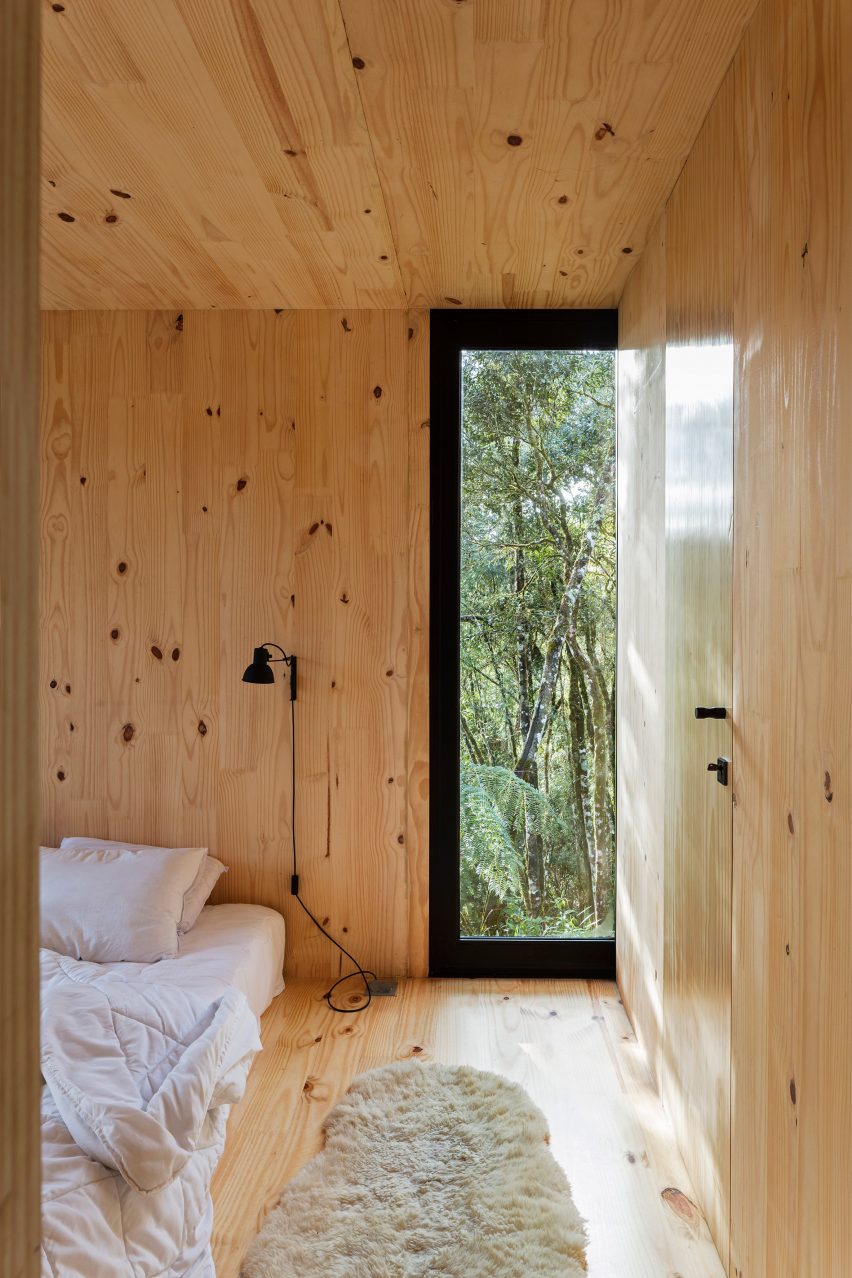
The central living room includes a dining and sitting area close to each other. Another seating space is defined by a fireplace and bookshelf.
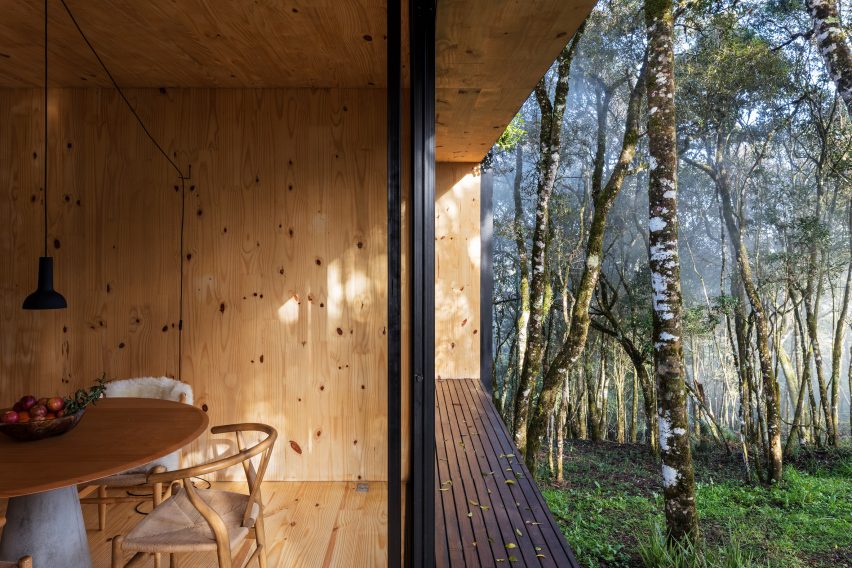
A kitchen has black countertops that relate to the home's stark facade and window frames, while wood cabinets were designed by Sandrin Planejados and are accompanied by island by Safra.
Sliding glass doors flank the living zone and lead to covered outdoor patios on either side. These patios can also be accessed from the two bedrooms.
Photography is by Leonardo Finotti.
Projects credits:
Partners: Luciano Andrades, Matías Carballal, Andrés Gobba, Mauricio López, Silvio Machado
Project team: João Bernardi, Helena Utzig, Marina Lemos, Lucas Marques, Débora Boniatti, Juliana Colombo, Pablo Courreges, Diego Morera, Emiliano Lago, Fabián Sarubbi, Sandra Rodríguez, Agustín Dieste, Sebastián Lambert, Chiara Vannozzi
Assembly and production: CROSSLAM Brasil
General site assembler: Marcelo da Silva
Local infrastructure: ALM Construções
Electrical engineer: Roberto Silvestrin
Plumbing: Júlio César Troleis
Woodwork: MAPA Architects
Ironwork: MAPA Architects
Lighting: Reka Iluminação
Green roof: Ecotelhado
Furniture: Arbatax, Wishbone, Tripolina, Faro Design, Expresso do Oriente, Balbueno Tapetes, Cremme